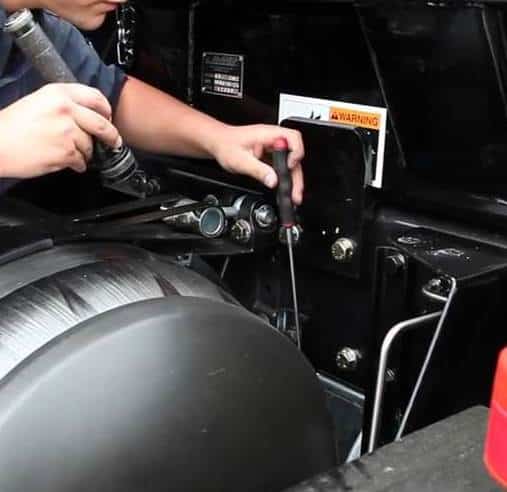By Kasia McBride, Marketing Manager, NGVi

As technology evolves, gaps between an employee’s base education and any industry-specific requirements widen over time, unless there is continued education. Many factors combine to draw professionals toward specialization. The need for skill advancement to keep pace with technology reflects a drive for greater efficiency, better performance, lower cost, and is essential for any sustainable business. For the NGV-specific transportation industry, where vehicle technicians, fuel system inspectors, and other operational personnel must acquire and maintain specialized skills and knowledge, certification promises to raise the bar on acceptable standards of performance.
There are many reasons why organizations pursue professional certification for their employees.
1. Greater peace of mind/Improved risk management
For many companies, certification gives employers a guarantee that their employees have sufficient knowledge and mastery of a full range of skills required to do real-world and complex job duties responsibly.

Technician certification by third party industry experts assures that organizations can more confidently rely on their workers with a high degree of consistency and safety, while also protecting the company from potential liabilities associated with vehicle failures and security risks.
2. Reduced operating costs
Although many employers recognize that employee development is important, they often view it as an expense rather than an investment. Research has shown that employees with a professional certification are more productive. That’s because certification better prepares them to deal with day-to-day challenges and gets the most out of new technologies. Certified vehicle technicians are able to diagnose a problem faster with more accuracy. This, in turn, eliminates service failures, resulting in fewer mistakes and a greater number of vehicles in service daily. Because employers tend to promote employees they trust, certification status enhances career potential.
By certifying their vehicle technicians as proof of their comprehensive capabilities (like correctly detecting fuel system component failures or damage) organizations can minimize serious economic impacts, such as vehicle downtime, or lengthy maintenance cycles. This can save organizations thousands of dollars per vehicle.
3. Improved stakeholder relationships
Having certified employees who have been verified by a third party organization translates into better customer relations and greater customer loyalty. It shows customers that the company holds its staff to the highest quality standards. Fleet customers, for instance, who often rely on the knowledge and skills of vehicle technicians, can feel more secure knowing their fleets are in certified hands.
Employees benefit also. Certification gives them recognition of competency, shows commitment to the profession, motivates them, gives them peace of mind and confidence, helps with career advancement, and provides them with a sense of pride and professional accomplishment.
4. Public Safety

5. Business credibility
Professional certification is an independent confirmation of credibility. This is instrumental for organizations to effectively demonstrate what mastery their staff has attained in their field within the organization, with business partners and with their customers. Certification provides assurance that the individual possesses the required competencies and is, therefore, a source of credibility.
Why NGVi’s Certification for CNG Fuel System Inspectors Is Important

Since 2008 when the NGV industry recognized that inspecting all high-pressure fuel system components was the only way to provide maximum risk management, industry best practice recommends completing an entire CNG fuel system inspection in conjunction with federally required cylinder inspections.

Because these inspections are complex processes during which damage are often not easy to identify for those unfamiliar with the components involved, proper training and certification is essential and must be a fundamental part of every effective safety program for NGV fleets and dealerships.
As a rigorous, independent assessment, NGVi’s CNG Fuel System Inspector Certification was developed based on a detailed job study of tasks technicians must apply during an actual inspection. Because of the practical, real-world application of knowledge, certification gives technicians the opportunity to demonstrate skills accurately and safely, and at the same time, it offers their employers an extra level of assurance and confidence in technician competency.
There are professional certifications available across a wide variety of fields and industries, but the greater technological advancement, the greater the need for ongoing employee certification. In the transportation industry, especially among NGV fleets that routinely operate in populated residential areas, certification of CNG fuel system inspectors just makes sense.
For more information about NGVi’s CNG Fuel System Inspector Certification program, visit our website at www.ngvi.com.

